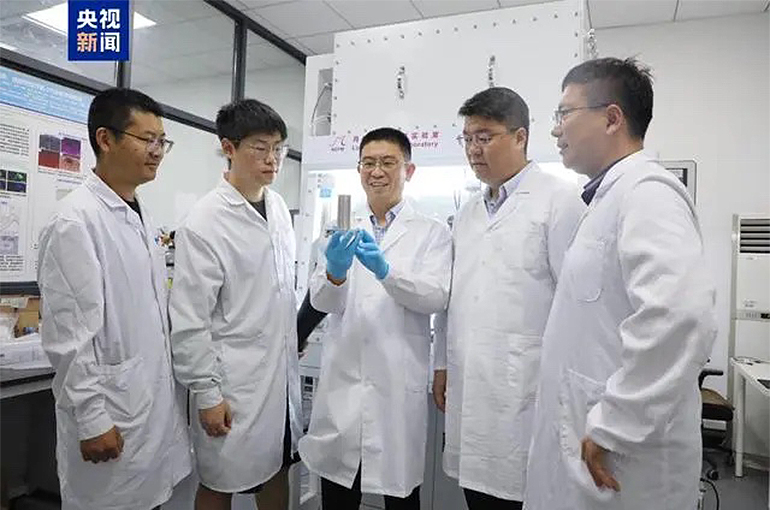 Chinese Scientists Find New Way to Get Water From Lunar Soil, Report Says
Chinese Scientists Find New Way to Get Water From Lunar Soil, Report Says(Yicai) Aug. 22 -- A scientific research team in China has reportedly discovered a new way to use lunar soil to produce large quantities of water after over three years of in-depth research, providing a theoretical basis for building research and space stations on the moon.
The team, including personnel from the Chinese Academy of Sciences' Ningbo Institute of Materials Technology and Engineering and Institute of Physics, found that when lunar soil minerals reach high temperatures, their hydrogen and iron oxides will undergo a redox reaction, generating pure iron and lots of water, China Central Television reported today.
The lunar soil will melt when the temperature rises to 1,000 degrees centigrade, releasing the water generated in the reaction as water vapor, according to the report.
One gram of lunar soil can produce 51 to 76 milligrams of water using the method, which means that 1 ton of lunar soil can generate enough water for about 50 people a day, the research team noted.
Based on the results, the team proposed a feasible strategy for the development and utilization of lunar water resources: focus sunlight through concave mirrors or Fresnel lenses to heat lunar soil until it melts, condense the water vapor into liquid, and collect and store the liquid in tanks to provide drinking water for human, plants, and animals on the moon. In addition, it can produce oxygen for human respiration and hydrogen as an energy source by water electrolysis.
The lunar soil used in this research was from the 1,731 grams collected in 2020 by the Chang'e 5 probe, China's first lunar sample-return mission. Using the same soil, Chinese scientists had previously found a small number of water molecules in the mineral, with the findings published in the British academic journal Nature Astronomy last month.
In May, China launched the Chang'e 6 probe and collected samples from the far side of the moon for the first time in history. The mission laid the foundation for the country's plan to land a man on the satellite by 2030.
Editor: Martin Kadiev